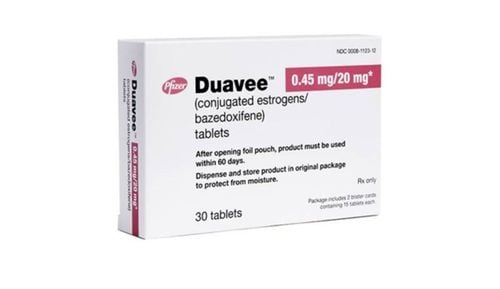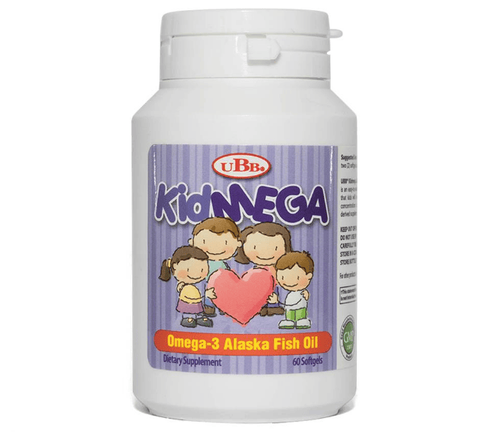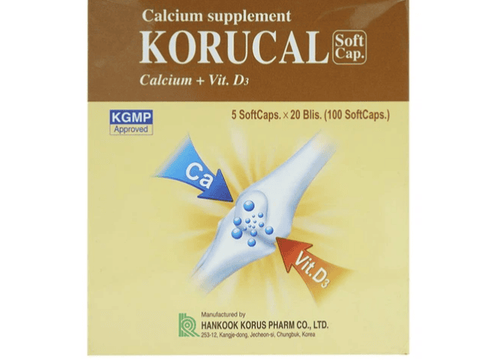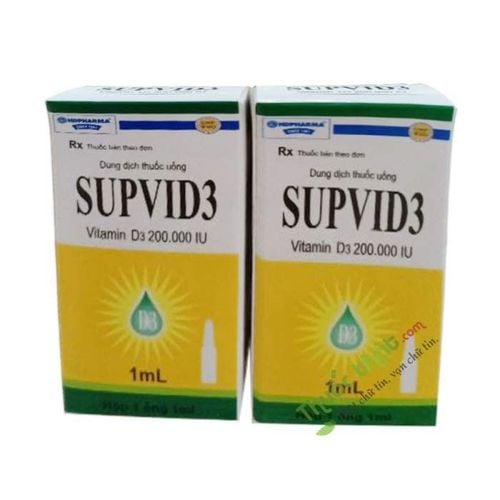This is an automatically translated article.
The article is professionally consulted by Master, Doctor Doan Ngoc Quynh Tram - Pediatrician - Neonatologist - Department of Pediatrics - Neonatology - Vinmec Nha Trang International General HospitalVitamin D is very necessary for the development of the body, helps the bone system and teeth to be strong, especially for children. Therefore, it is necessary to supplement vitamin D for children through diet, sun exposure and supplements.
1. Vitamins EASY
Vitamin D, also known as calciferol, belongs to the group of fat-soluble vitamins. The body can either synthesize vitamin D on its own or get it from food and medicine. Vitamin D is a group that includes 5 types from vitamin D1 to vitamin D5, of which vitamin D2 and vitamin D3 are most active:Vitamin D1 (also known as Ergosterol) is a precursor of vitamin D2, found in yeast beer, barley, in edible mushrooms and some other mushrooms. Ergosterol is not irradiated, has no vitamin activity, will convert to vitamin D2 under the effect of ultraviolet light. Vitamin D2 (also known as Ergocalciferol) is synthesized from Ergosterol under the effect of ultraviolet light after being exposed to sunlight. Vitamin D2 is not available in the body but can be obtained through food. In nature, Ergocalciferol is abundant in fish liver. Vitamin D3 (also known as Cholecalciferol). The compound 7-dehydro cholesterol is a precursor to vitamin D3, which is formed in human skin. This precursor, after exposure to ultraviolet light at wavelengths between 290 and 315 nm, will activate to vitamin D3. Also in nature, vitamin D3 can be obtained from fish liver. Vitamin D3 is biologically more active than vitamin D2. Vitamin D4 (also known as 22.23 dihydro-ergocalciferol) has a precursor compound 22.23 dihydro-ergosterol and vitamin D5 (sito calciferol) has a precursor compound 7-dehydro-β sitosterol. Both vitamin D4 and vitamin D5 are biologically weaker than vitamin D2. Vitamin D plays a particularly important role in the process of bone formation as well as helping the skeletal system maintain strong and healthy growth. Vitamin D acts as a hormone that regulates absorption, metabolism and maintains stable concentrations of inorganic substances, mainly phosphate and calcium, in the blood. Specifically, the main function of Vitamin D is to help increase the absorption of calcium and phosphate from the intestine, increase the reabsorption of calcium from the kidney, participate in the calcification processes in cartilage growth to create bone. In particular, vitamin D through the stimulation of osteoblasts in bone will increase the synthesis of alkaline phosphatase and osteocalci (a vitamin K-dependent bone protein) and collagen. In addition, vitamin D also plays a role in regulating calcium levels in the blood.
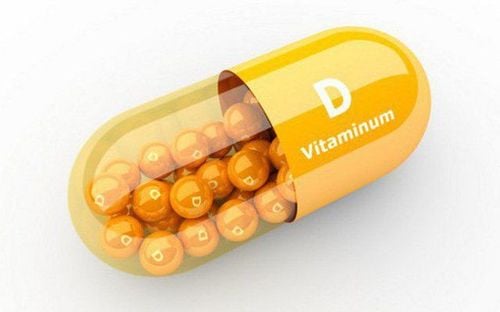
Vitamin D có vai trò quan trọng trong sự phát triển của cơ thể
2. Vitamin D supplements for children
Vitamin D plays a very important role in the physical development of children. Therefore, it is necessary to supplement vitamin D for children from an early age, especially vitamin D3. Although supplementation is necessary, it must be done in a scientific manner, not arbitrarily using drugs or functional foods. Therefore, from the beginning, children should compensate for vitamin D deficiency with food and sun exposure instead of choosing to take medicine.2.1 Supplement vitamin D from food Feed your child foods rich in vitamin D3 in the main meals such as shrimp, beef liver, pork liver, chicken eggs, fish. In particular, salmon, sardines, and fish oils have the highest vitamin D content. In addition, can use more foods such as cheese, some cereals, soybeans and dairy products (fresh milk, yogurt...).
2.2 Sunbathing for children Sun exposure allows the synthesis of vitamin D in the skin. In people with light skin pigmentation, in most seasons, 10 to 15 minutes of sun exposure is sufficient for adequate vitamin D synthesis. However, darker skin pigmentation, sunscreen use, winter or northern latitudes can markedly reduce the skin's vitamin D synthesis and increase the need for food sources. Although exposure to the sun allows the synthesis of vitamin D in the skin, doctors do not recommend sun exposure to prevent vitamin D deficiency, sunlight contains types of ultraviolet rays such as UVA, UVB, UVC . In particular, UVA and UVB are two types of harmful rays that are capable of causing skin damage, tanning and increasing the risk of skin cancer. These concerns have led to recommendations that exposure of infants under six months of age should be avoided and that sun exposure should be limited in older children through the use of protective clothing and sunscreen. The question often asked by parents is whether or not vitamin D supplements are needed in the summer? The answer is still need to supplement vitamin D for children in the summer.

Cha mẹ có thể bổ sung vitamin D bằng cách tắm nắng cho trẻ
2.3 Taking medicine or functional food If the child has obvious signs of vitamin D deficiency (eg, fractures, rickets, osteoporosis, ...) or the child has a chronic disease, it is necessary to supplement with vitamin D. than. Oral medicine only supplementing vitamin D is not enough, but it needs to be combined with calcium and MK7 to bring high efficiency, to make bones strong and supple. However, it is important to use the right dose. According to the American Academy of Sciences, it is recommended that for infants who are exclusively breastfed or partially breastfed (with additional formula) supplemented with vitamin D at a dose of 400 IU per day, starting from a few days later. born. Stop supplementing vitamin D when the baby has been weaned and is drinking 1 liter of vitamin D-fortified formula per day.
Parents should not arbitrarily buy vitamin D supplements, but should follow the instructions of the doctor to avoid vitamin D toxicity due to taking high doses for a long time. Depending on the disease, there is a specific amount of supplement. Signs of vitamin D poisoning are anorexia, weight loss, frequent urination, and heart rhythm disturbances. More seriously, calcium is deposited in the walls of blood vessels, heart and kidneys causing calcification.
However, children with anorexia are not only due to vitamin D deficiency, but also may be due to lack of other vitamins such as vitamins A, B, C, E, zinc, selenium, chromium, vitamins B1 and B6, ginger, cherries extract. ri (vitamin C), ... these substances have the effect of helping to improve taste, eat well, achieve height and weight in accordance with and exceed standards, have a good immune system, strengthen resistance to reduce minor illnesses and diseases. Fewer digestive problems.
Please regularly visit Vinmec.com website and update useful information to take care of your baby and family.





